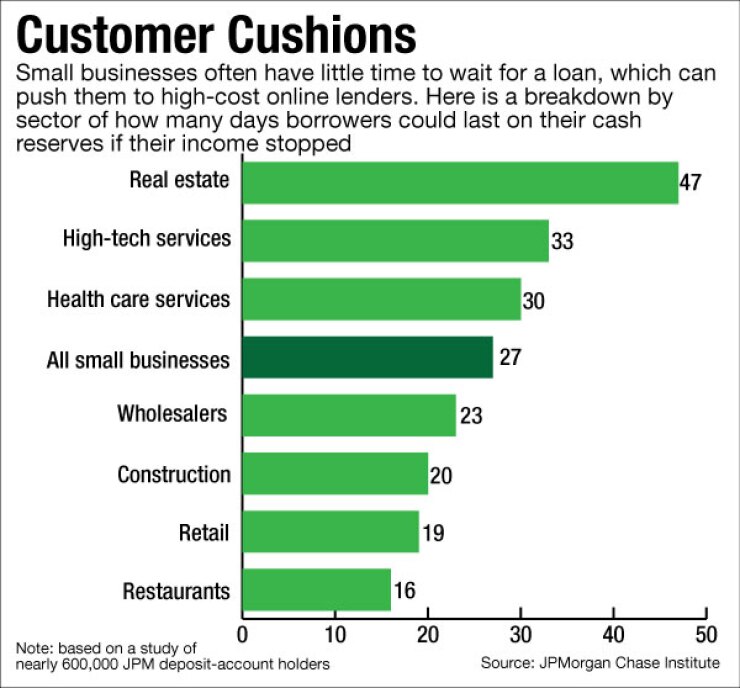
For several years unsavory tactics in the riskier corners of nonbank small-business lending have been something of an open secret.
Subprime business lenders frequently rely on brokers who have an incentive to push loans that will pay them the biggest commission, rather than promoting the best option for the borrower. These commission payments frequently draw comparisons to abuses during the subprime mortgage era.
And it is not only borrowers who get hurt. The lenders frequently get exposed to losses when brokers, in a practice known as loan stacking, return to existing borrowers and offer them new loans from different creditors that are secured by the same assets.
The sector's below-the-surface problems may now attract closer scrutiny following a leadership shake-up at CAN Capital, which is one of the biggest firms in the sector.
The privately held New York company said Tuesday that its chief executive officer and two other executives are
CAN Capital attributed its subpar credit performance to internal problems related to its method of collecting payments.
But industry critics said that CAN's predicament could lead to a harsher examination of the entire subprime business-lending industry, both by the government and by banks that provide financing to the sector.
"I've been saying for two years that this industry is done," George Souri, founder and CEO of LQD Business Finance, said in reference to subprime business lenders that rely on brokers. LQD is a nonbank lender that has direct relationships with its borrowers.
"Mark my words: This is the beginning of the end," Souri said.
Those sentiments were echoed by Doug Naidus, the CEO of World Business Lenders, a nonbank firm that requires its borrowers to use real estate as collateral.
His company's reliance on real property — as opposed to the borrower's business inventory — results in a smaller pool of potential customers. But it also eliminates the dangers associated with loan stacking because property liens are public documents.
"The sector doesn't have the necessary protections available to it," Naidus said. "You're faced with reaping what you sowed, because your portfolio is defective."
To be sure, it is in the interest of these critics to disparage companies that rely heavily on brokers, since in many cases they are competing for the same borrowers. But the points they make about the problems frequently associated with loan brokers are not in wide dispute.
Another large subprime business lender, OnDeck Capital, has reduced its reliance on brokers over the last few years. In 2015, 28% of the firm's loan origination volume came through its broker channel — OnDeck refers to brokers as "funding advisors" — but that is down from 56% two years earlier.




